As we continue to interrogate the proposed Draft Constitution (the Draft) in the tradition of public conversation, issues central to equality and the fundamental precept of the separation of powers are being partially considered in this instalment.
Although not a part of the justiciable constitutional text, the preamble would ordinarily constitute a true reflection of the letter and spirit of the document. In the extravagant claim of the incongruent first and second paragraphs of the Draft preamble, the people of Gambia “… having had the opportunity to express our views and aspirations on how we wish to be governed, affirm that this Constitution is the embodiment of our will and resolve for democracy … separation of powers … equitable distribution and use of resources, the rule of law, equality and observance of the principles of fundamental human rights and freedoms”.
In light of the above, I propose to examine separation, equality, and equitability.
The concept, now a firmly established constitutional principle across the democratic world is rooted in the simple if sublime proposition that governmental powers must be located within the legislative, executive, and judicial domains of a polity in a manner that keeps them “separate from, and independent of, each other as the nature of a free government will admit; or as is consistent with that chain of connection that binds the whole fabric of the constitution in one indissoluble bond of unity and amity” (Federalist 47)
That separation also entails the branches acting as checks on each other.
On the physical layout of the Draft, separation is arguably adhered to.
But the spirit and actuality of separation are smothered by an ‘animal farm’ tendency that accords differential treatment to the doctrine among the branches of government.
For example, in the Draft, the President is removed via an elaborate impeachment mechanism involving the National Assembly (NA) and the Judiciary. The role of the Judiciary may be regarded as a safeguard against legislative vandalism but considering that an impeachment process is exclusively a public function, it is improper to allocate decision making functions to participants outside the three branches government.
In that regard the delineated process may be faulty but at least all three branches are involved.
If the process of presidential removal in the Draft is given a qualified pass, how should a Superior Court Judge (a Judge) be removed from the bench given the democratic principle of separating power and its concomitant philosophy of checks and balances?
In the Draft, the removal of a Judge is a wholly internal process. What role is accorded the President is merely ceremonial, as in merely suspending or dismissing a Judge after a decision was reached by the Judiciary’s internal and largely collegial deliberations.
By section 194 (1) of the Draft, “a Judge may be removed for – (a) inability to perform the functions of his or her office arising from infirmity of body or mind; (b) gross misconduct or misbehaviour; (c) serious breach of a code of conduct applicable to judges; or (d) bankruptcy or entering into an arrangement with creditors”.
The removal process is triggered by either the Judicial Service Commission (JSC) on its own motion, or a petition to it by a member of the public. If the JSC is persuaded it petitions the President for the removal of the Judge who then issues a suspension within seven days.
Inside fourteen days of suspension, the President, acting on the advice of the JSC, “… shall – (a) in the case of the Chief Justice, appoint a tribunal comprising – (i) a judge of a Supreme Court or its equivalent in a country with a common law tradition and jurisdiction, as chairperson; (ii) two other superior court judges from separate countries with a common law tradition and jurisdiction; (iii) a legal practitioner of not less than twenty years’ experience with high moral character and proven integrity; and (iv) one person, not being a legal practitioner, with not less than twenty years’ experience in public service affairs and of high moral character and proven integrity.
On the other hand, if the target of removal is “… a judge of the Supreme Court, other than the Chief Justice, appoint a tribunal comprising – (i) the President of the Court of Appeal, as chairperson; (ii) two other persons who hold or have held office as superior court judges; (iii) one legal practitioner of not less than fifteen years’ experience with high moral character and proven integrity; and (iv) one person, not being a legal practitioner, with not less than twenty years’ experience in public service affairs and of high moral character and proven integrity”.
In all other cases “… appoint a tribunal comprising – (i) a judge of the Supreme Court, as chairperson; (ii) two other persons who hold or have held office as superior court judges; (iii) one legal practitioner of not less than fifteen years’ experience with high moral character and proven integrity; and (iv) one person, not being a legal practitioner, with not less than fifteen years’ experience in public service affairs and of high moral character and proven integrity”.
As delineated in the Draft, removing a Judge raises troubling concerns, not least because it must be held in camera.
In CAMERA!
The process turns the separation principle on its head. As a sovereign country, Gambia must not look outwards for direct players in removing its Chief Justice.
Why must Judges decide the fate of other judges in a process that excludes any participation by the NA? In Kenya at lease a role is played by the Speaker of its National Assembly as Chair of the Tribunal constituted to investigate allegations against a Judge.
Even this is unsatisfactory given the separation principle and its handmaiden of checks and balances.
The Judiciary must subject itself to peer-scrutiny involving the NA in removing a Judge. It is a more transparent process and concentrates the mind of a Judge who may be more inclined to prolong matters given the nicer environment of close door removal hearings.
Far more troubling than the internal adjudication of a Judge’s fitness for office is the issue of retirement benefits as stipulated in the Draft.
According to 195 (1), “a judge of a superior court shall, on retiring, be entitled to any gratuity payable to him or her and shall, in addition, be paid a pension equal to the salary from which he or she retired, if on the date of retirement he or she has served as a judge of the superior court for an aggregate period of not less than ten years”.
At 195 (2) of the Draft, “where a judge of a superior court retires with less than ten but more than five years’ service as a judge of the superior court, he or she shall, in addition to being entitled to any gratuity payable to him or her, be paid a pension equal to three-quarters of the salary from which he or she retired”.
In the event the above provisions are unmet, (195 (3) of the Draft states that “a judge of a superior court who has not satisfied any of the conditions prescribed in subsection (1) or (2) shall, on retiring, be paid such gratuity and pension as may be approved by the Judicial Service Commission”
“Aggregate period”!
In effect, a Judge can work a few years, go international, utilised the revolving door to return with a view to accumulating the requisite period for a gold-plated pension package nicely carved in the Draft for a Judge by a CRC headed by a Justice of the Supreme Court. It is akin to what is called the military industrial complex in US political parlance.
Is this not the very definition of conflict of interest?
If earlier assertions of conflict regarding the appointment of a serving Judge as Chair appear esoteric and remote, is this unjustified “aggregate” policy written into the Draft not a crystal clear provision that will directly benefit a member of the CRC?
As if the CRC was afraid of retired Judges begging at Tippa Garage or the Traffic Light on Kairaba Avenue, 195 (5) of the Draft stipulates that “a pension paid to a judge of a superior court in accordance with this section shall be subject to increases as the salary of a serving judge of the superior court of the equivalent level”.
What the separation principle envisages is the operational independence of judicial officers and hence the protection of tenure in its fullest sense.
If this kind of pension is available to a Judge, how about a National Assembly Member and all other public servants who served decades and contributed immensely to the economic development of The Gambia.
What country pays a segment of the public workforce gold plated pensions whilst a vast segment of pensioners in the same public sector is mired in penury.
And don’t tell me about challenging the obvious discrimination in Court as the Draft state that its “validity or legality … is not subject to challenge by or before any court or other organ of the State” (see 7(3) of Draft).
The pension issue belong in separate legislation and not a national Constitution.
We urge the Judiciary to work collaboratively on a fairer pension scheme for everyone.
What is presented in the Draft for Judges is not “equitable distribution and use of resources”
Why amend if the Draft ought to be rejected for outraging the conscience of a conscionable people through blatant preferential treatment arguably informed by conflict of interest.
An equal not preferential and exceptional Gambia!
Lamin J. Darbo

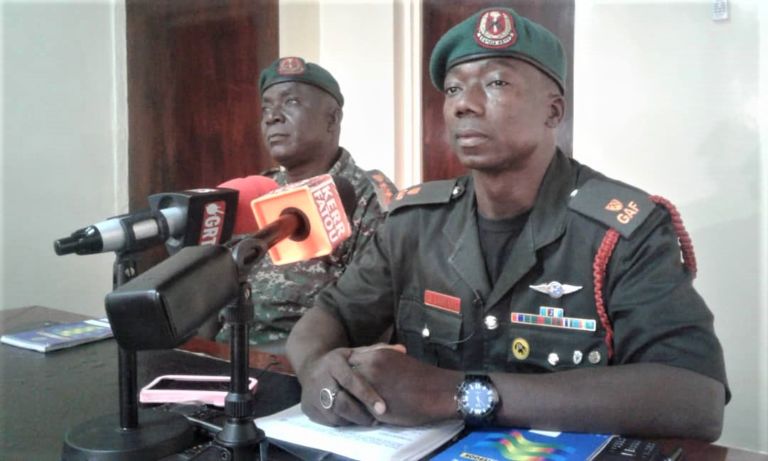
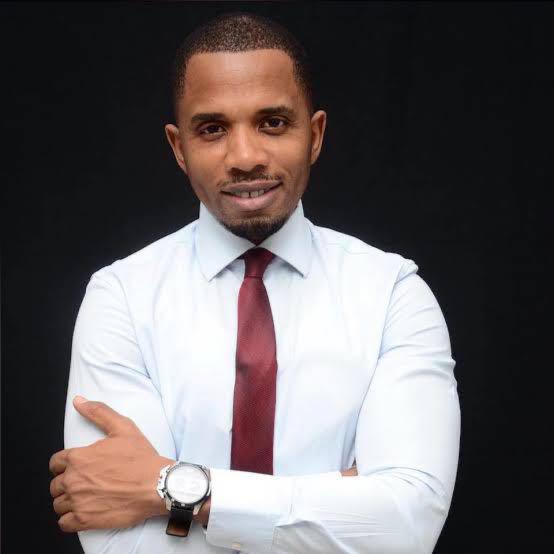
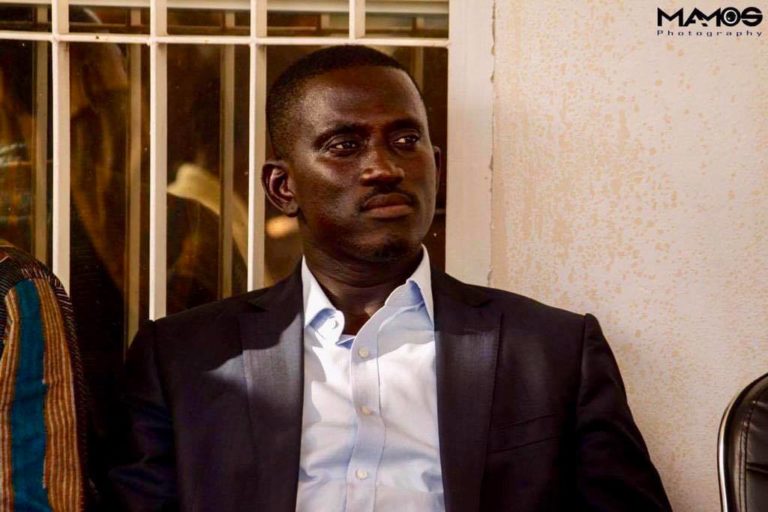

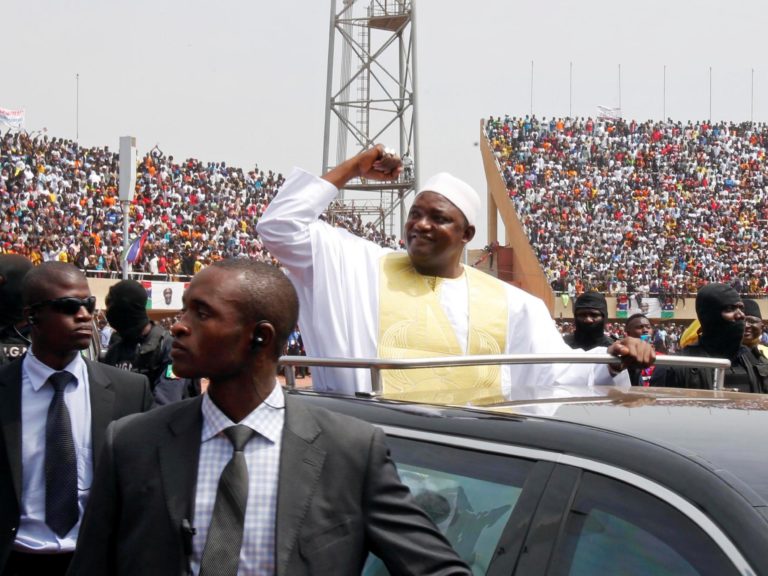
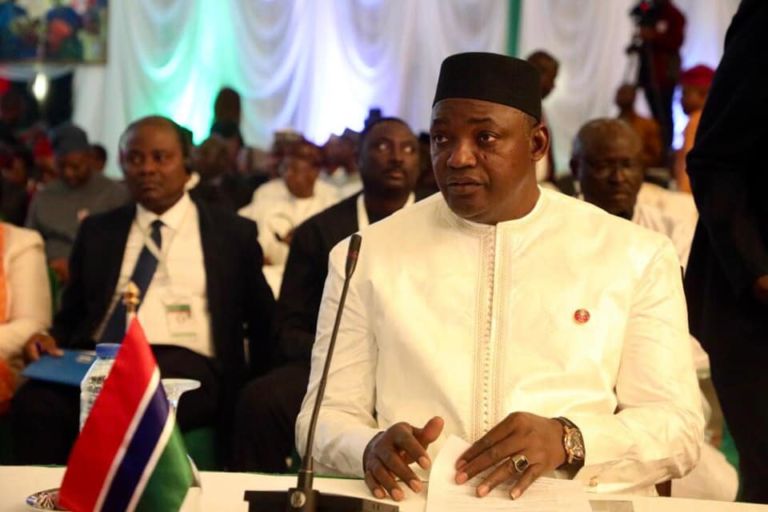
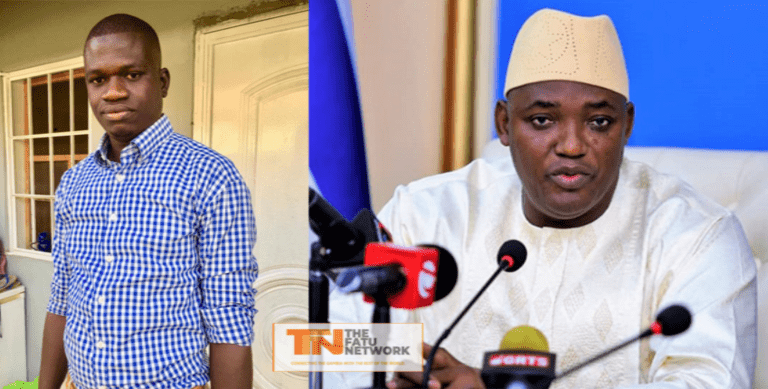
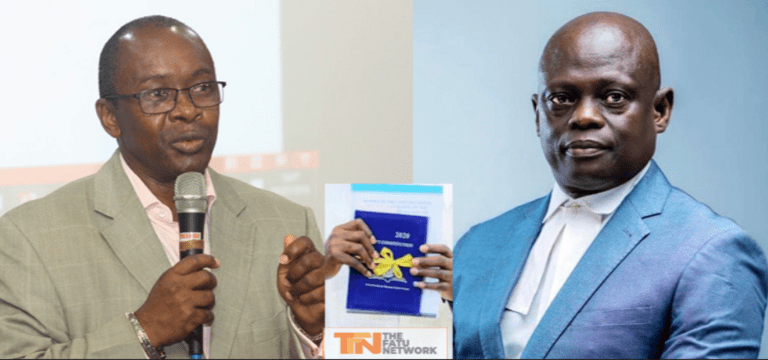
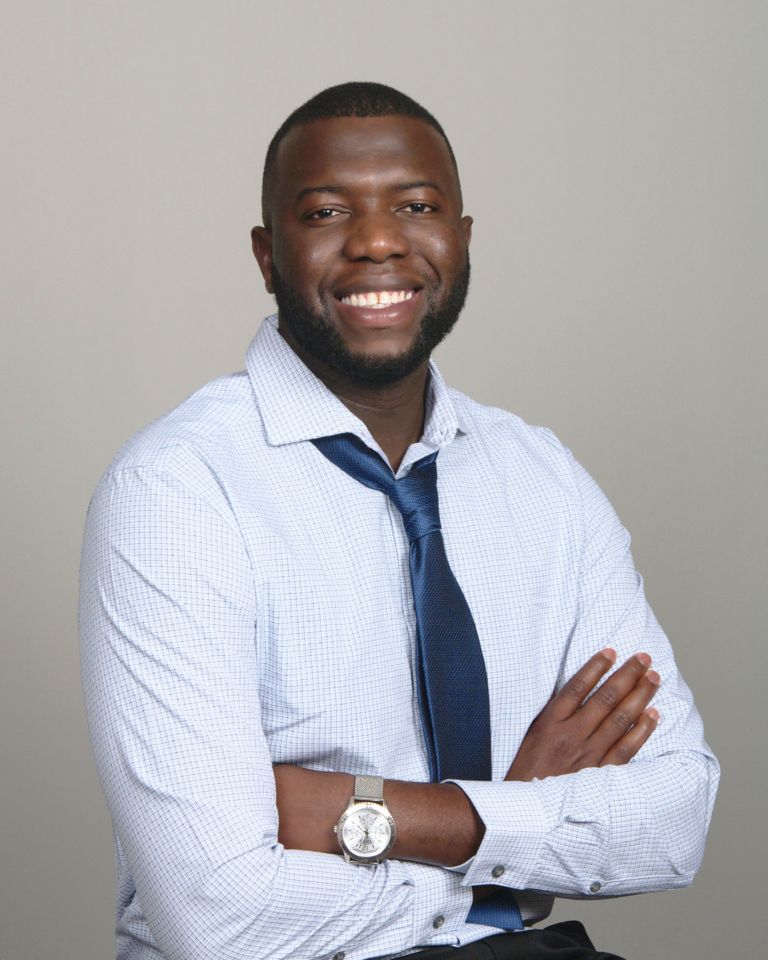

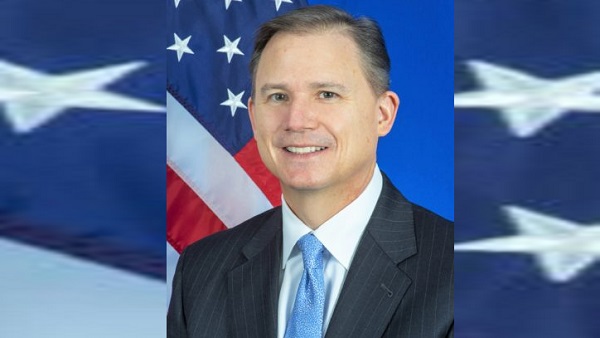

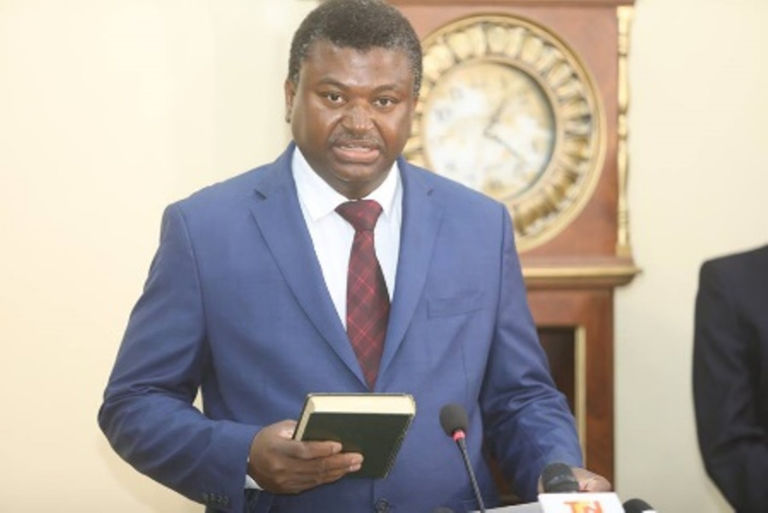


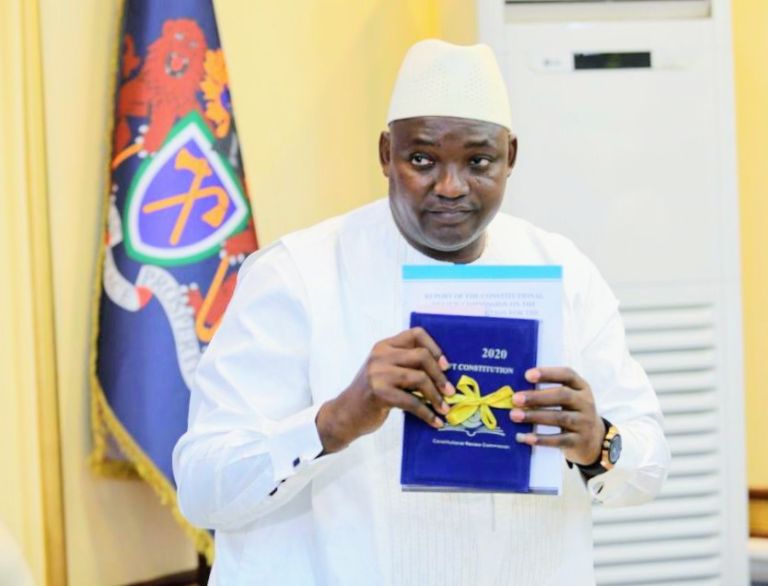
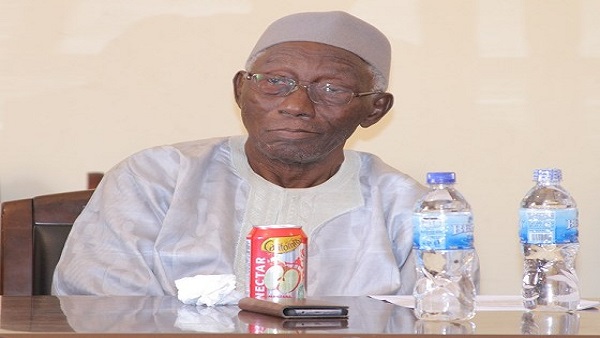
Darboe’s World Press Freedom Day statement in full
My Dear Compatriots,
Over the weekend the World Press Freedom Day and the May Day of 2020 were marked with the cloud of the Corona Virus Pandemic hanging over all us and without the usual fanfare and bonhomie of the past years. We thank all of you for the prayers you continue to offer our nation and our people in this blessed month of Ramadan at a time when like the rest of the world, we are experiencing unprecedented challenges.
The United Democratic Party reiterates our collective gratitude to the front-line health workers who are exerting maximum efforts under the constraints of limited resources to help contain a deadly pandemic whose full scope in our society is yet to be determined.
UDP continues to appeal to our government to ramp up their mitigation strategies in ways that reflect the gravity and urgency of this big challenge especially in the areas of expanded testing and upgrading of our severely under resourced health facilities.
UDP commends the efforts of the Private Sector, Civil Society Volunteers, the Gambian Diaspora, Individuals Businesses and Donors across the entire spectrum of our society within and outside of The Gambia who are reaching out to the needy with urgent relief supplies.
The need is great, and it would require collective collaboration and coordination; a sustained spirit of shared sacrifice and generosity to see us through this rough patch. Let us continue to be each other’s keeper.
For these reasons the UDP wishes to take the two occasions to salute all Workers and Journalists on the special days dedicated to them and to send out solidarity messages to the Leaders of the Gambia Teachers’ Unions, Commercial Trades Unions and the Gambia Press Union.
UDP is mindful that without the work of Journalists and the media it would be difficult to hold power to account. and without transparency and accountability the people will labour in vain. A free and vibrant press is essential to the health of high energy high democracy. Therefore, UDP calls on the Government to enact a Freedom of Information Act to ensure transparency and integrity in the management of Public affairs.
This Pandemic offers crucial lessons in the stark realities of where we stand as a nation both in terms of short- and long-term challenges when it comes to the basic needs of our people. The uncontested truth is that we are lagging far behind in most indices of human development. We must therefore begin to think about how we can better prepare our country post Covid19 in ways that lift our people out of cyclical poverty and all its attendant problems.
For example, we can look at agriculture as a sector where the vast majority of our citizens depend upon for their livelihoods. For generations and to date our farmers mostly rely on small subsistence farming; dependent on hand cultivation to survive, leaving them trapped in poverty and food insecurity.
This situation is made more acute with the uncertainties of global warming and its effects on rainfall patterns increasing the vulnerability of farmers who even under the best of circumstances survive on marginal yields.
The key to our success as a country is to get Agriculture not only for providing the needed food for consumption but also for business by giving it the highest priority in our national development objectives. We have the foundational expertise, the land and water resources, appropriate climate and crucially a youthful population that can start, sustain, and grow a modern, diverse, and innovative agriculture sector that can anchor our economy into the future. We must look beyond business as usual and ensure that we see Agriculture as a business and encourage our youths to go into agriculture as “Agripreneurs”.
A robust and technologically advanced agriculture initiative that is carefully planned and managed, the establishment of agro-processing zones in which we can support the entire agriculture value chain would revolutionize farming, revitalize rural communities, create steady year-round incomes for farmers and ensure food security. It would create a stable economic base, positively impact the overall health of the citizens as both nutrition and income levels rise.
That is why the United Democratic Party is committed to make this vital sector one of our highest priorities. We strongly believe The Gambia should follow through with the AU declaration that was signed in 2003 in Maputo requiring member States to allocate 10% of their annual national budgets to agriculture and rural development. That would represent a significant departure from the paltry less than 2% we are currently allocating.
We can and must do better by our farmers because we cannot progress unless we address a sector in which nearly three quarters of our people depend upon. Like other nations that have succeeded in transforming agriculture, we must think big, we must sacrifice in the short term, we must invest in our people and pivot from hard scrabble subsistence farming to something better and more suited to the needs of our people now and into the future.
I thank you all!
Ousainou ANM Darboe
SECRETARY GENERAL & PARTY LEADER